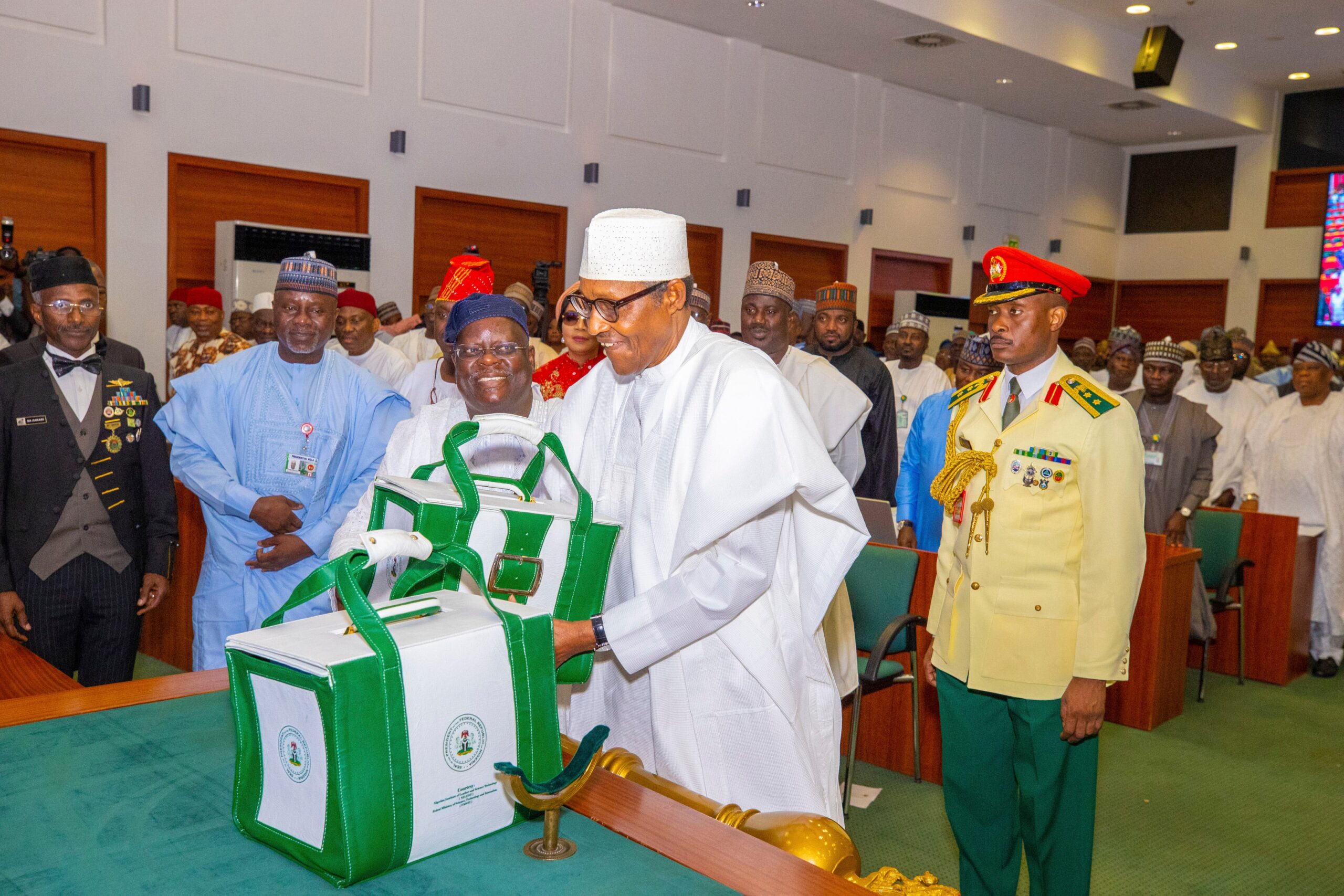

Nigerian President Muhammadu Buhari is launching an ambitious plan to grow the West African nation’s economy and end its security woes with record government expenditure during the next fiscal year.
The record 20.5 trillion naira ($47.3 billion) proposed expenditure “reflects the serious challenges” faced by Nigeria and contains “key reforms necessary to address them,” Buhari told lawmakers when presenting the budget in the capital city of Abuja on Friday.
The budget expected to be approved and take effect in January 2023 is 19% higher than this year’s government expenditure and is also Nigeria’s highest ever, prioritizing fiscal sustainability, economic growth and security.
As Nigeria still battles violent extremism in its northeast and armed attacks in the northwest and central regions, resulting in the loss of thousands of lives in the last year, Buhari allocated the most funds to defense and internal security.
At least 5.3 trillion naira ($12.2 billion), or 26% of the proposed budget, is to go into capital expenditure in an ambitious plan that the nation’s government is banking on to build key infrastructure and create jobs in Africa’s biggest economy where many years of bad governance and corruption have stifled development.
“The 2023 budget was prepared amidst a very challenging world economy that is weakened by the lingering effects of the COVID-19 pandemic, high inflation, high crude oil prices resulting in the huge cost of (a gasoline subsidy) and negative spillover effects of the Russia-Ukraine war,” said Buhari who is to leave office as president next year after general elections in February.
With projected economic growth of 3.7% and 16.87 trillion naira ($38.9 billion) in expected federal government revenue in 2023, Buhari said Nigeria is aiming to achieve “higher, more inclusive, diversified and sustainable growth” with the proposed budget.
External borrowings to the tune of 8.8 trillion naira ($20.3 billion) would fund the budget deficit, Buhari said, amid concerns over the country’s high public debt of 41 trillion naira ($96.7 billion) as of March. The country has also missed out on rising oil prices with limited crude production blamed on oil theft.
“I assure you, insecurity, especially banditry and kidnapping, will be significantly curtailed before the end of this administration. We will redouble our efforts to ensure we leave a legacy of a peaceful, prosperous and secured nation,” he said, adding that the “significant challenges” Nigeria faces “would have been much worse” if not for the government’s interventions.

